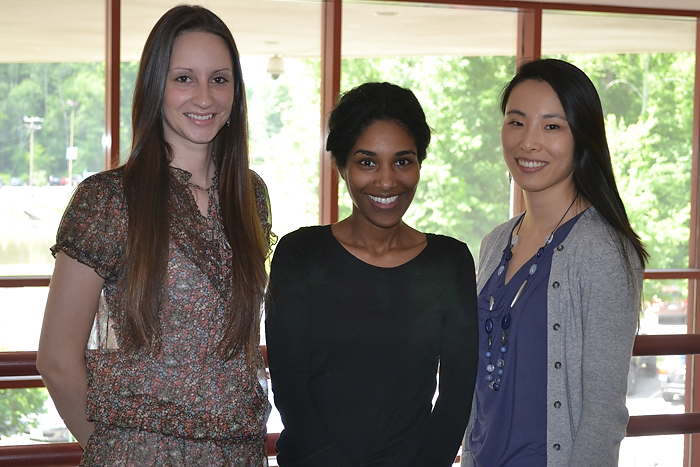
The UConn Center on Aging at the UConn Health Center was the research home for not just one but three Medical Student Training in Aging Research (MSTAR) scholars this summer.
MSTAR is a prestigious program administered by the American Federation for Aging Research and the National Institute on Aging at the NIH. The program is designed to help medical students pursue their career interests in aging-related research and clinical topics. The MSTAR Scholars were selected by a six-person National Selection Committee.
“This is the first time that all of our grant applications were funded in the same competition – three out of three,” says Dr. George Kuchel, director of the UConn Center on Aging. “It’s impressive and says a lot about our program and the respect it garners from our peers.”
Robin Moiseff
UConn second-year medical student Robin Moiseff spent the summer working with Dr. David Steffens, the chair of the psychiatry department at the UConn Health Center. Moiseff helped analyze information Steffens has compiled regarding late-onset depression in the elderly and the structural brain changes that may be related to this.
“While at Duke University, Dr. Steffens started a longitudinal study involving older depressed and non-depressed individuals. Through a brain donation component of the program, neuropathology reports are now available on some of these subjects,” explains Moiseff.
The patient data accumulated over the years includes baseline MRI images of their brains, extensive cognitive evaluations, medical histories, and ultimately neuropathology diagnoses. Moiseff sifted through this information and tried to see if there were any connections between the subjects’ depression, cognitive status, and their structural brain changes.
The goal of the research, which will continue as more information becomes available, is to elucidate the complicated relationship between late-onset depression and neuropathology.
Jing Sun
UConn second-year medical student Jing Sun worked with Julie Robison, associate professor at the Center on Aging, on the “Money Follows the Person” program. The program looks at how well residents transition out of nursing homes in to their own homes or other community-based settings of their choosing.
Sun surveyed participants over the phone and in person, asking questions about different aspects of their life, why they made the choices they did and what kind of help they received in the community.
Part of her research focused on a common yet serious problem afflicting the elderly – their increased risk of falling and injuring themselves. Each year, one in every three adults age 65 and older falls, according to the Centers for Disease Control and Prevention. Falls can cause moderate to severe injuries, such as hip fractures and head injuries, and can increase the risk of early death. Sun looked at the survey data to determine a patient’s fall risk and whether it’s possible to better predict or prevent the likelihood of falling for some individuals.
“It’s really a big concern and I wanted to look at something that affects a lot of people and learn more about it to see how it will impact my patients later on,” says Sun.
Timnit Tekeste
A second-year student from the Medical College of Wisconsin, Timnit Tekeste, spent the summer working with Lisa Barry, assistant professor at the Center on Aging.
Barry’s recent research focuses on the health of older inmates, the fastest growing segment of the prison population. She is looking at disability in older prisoners within Connecticut’s prison system and how that may affect their mental health.
Tekeste was interested in determining the prevalence of chronic pain in older inmates and finding out if chronic pain is associated with disability.
“The current literature shows that chronic pain is common among older adults living in the community,” says Tekeste, “but we know nothing about chronic pain in older prisoners and whether or not chronic pain may be associated with other negative health outcomes.”
Rewarding Experience
All of the student’s research projects were tailored to be short-term studies. Now that they’ve gathered the data, they plan on writing research articles and submitting them to various journal publications. They will also be discussing their findings during an MSTAR student poster presentation at the 2014 Annual Meeting of the American Geriatrics Society in Orlando, Fla.
All three scholars say their summer experience has been rewarding and with the graying of America, what they’ve learned at the Center on Aging will better prepare them in their future medical careers caring for an ever-increasing elderly population.
Follow the UConn Health Center on Facebook, Twitter and YouTube.



